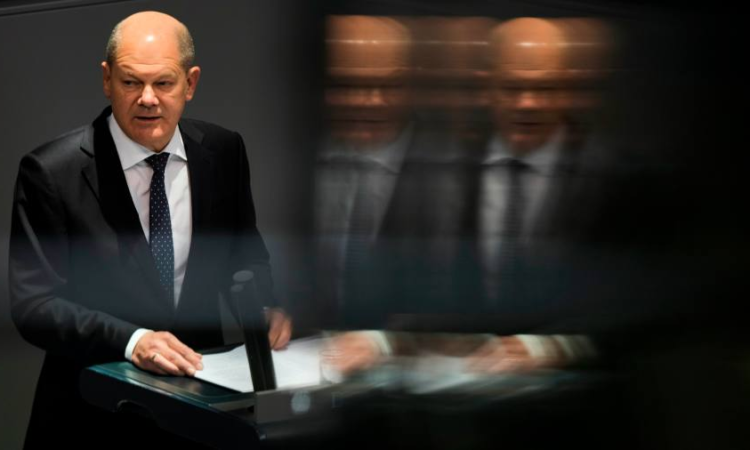
German chancellor Olaf Scholz dropped his opposition to an EU gas price cap after late-night summit talks aimed at quelling the energy crisis hanging over the union’s economy.
EU leaders agreed to endorse further work towards a cap that would “immediately limit episodes of excessive gas prices” — although with heavy caveats aimed at easing Berlin’s fears that market interventions could endanger security of supply.
The compromise is a relief for EU countries including Italy, France, Spain and Belgium, which have long demanded a ceiling on gas prices as the cornerstone of efforts to ease the pain of soaring energy costs following Russia’s war in Ukraine.
Charles Michel, the European Council president, said in the early hours of Friday morning that the bloc’s 27 leaders had reached an agreement that would bring down prices. “I am confident that very soon the effects will be seen,” he told reporters. “Because I think that we sent a clear signal to the markets that we are ready to act together, that we are able to act together.”
Scholz, who had begun Thursday with a speech to the Bundestag outlining his opposition to a price cap, conceded after the summit: “It makes sense.”
“We have discussed the possibility to limit price spikes,” Scholz said. “There is still a lot of concrete work to do there.”
According to summit conclusions hammered out over 11 hours of talks, the leaders are requesting that Brussels “urgently” work on a “temporary dynamic price corridor on natural gas transactions”.
There would also be a mechanism to limit the price of gas used for electricity generation — a method already used in Spain and Portugal to limit energy bills.
The document also said that member states agreed to pursue joint purchasing of gas, the development of a new benchmark for gas prices, and to escalate efforts to cut gas demand.
However, the price caps could only be implemented if certain conditions laid out by the European Commission are met, the text said. These include not endangering security of supply and not increasing consumption of gas as a result of lower prices.
The commission’s proposed emergency price cap mechanism would limit surges in prices on the Dutch Title Transfer Facility, the EU’s main gas price benchmark.
“We’re happy with the process and the decisions we’ve taken,” said Belgian prime minister Alexander De Croo.
Part of the reason for Germany’s earlier reluctance to embrace price caps is a fear that they would risk diverting gas to other countries that offered a higher price, undermining European efforts to shore up supplies as Russia cuts exports to the bloc following the invasion of Ukraine.
However, attending what is likely to be his final summit as Italian prime minister, Mario Draghi called for urgent action to limit the risks of recession and fragmentation in the single market.
Imports from Russia made up 40 per cent of the EU’s gas supply in 2021 but have dropped to around 9 per cent in recent weeks as Moscow has increasingly squeezed supplies to retaliate against sanctions from Europe.
Arriving at the summit, Emmanuel Macron, the French president, said: “I think it is not good — either for Germany or Europe — that [Germany] isolates itself.”
A number of member states have also urged Brussels to propose extra EU-level funding to ease the crisis and accelerate the bloc’s bid for energy independence from Russia, a push that is backed by commission president Ursula von der Leyen.
Germany’s €200bn support package for businesses and households has been criticised for using fiscal firepower that many smaller member states lack and potentially skewing the single market.
Additional reporting by Sam Jones in Berlin, Leila Abboud in Paris and Andy Bounds in Brussels






